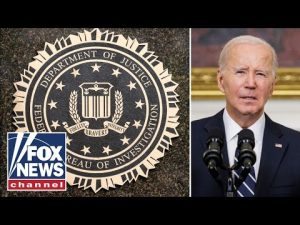The transcript from this conservative news channel highlights a significant issue: the left’s refusal to accept accountability while simultaneously blaming the right for societal problems. There’s a disheartening pattern here. A tragic event occurs, and somehow, it’s the Republicans’ fault for supporting the Second Amendment. It’s as if preserving constitutional rights is now something to be ashamed of. Meanwhile, the left conveniently ignores their disregard for the First Amendment—an issue equally deserving of scrutiny.
Our society finds itself in a state of perpetual disagreement. Some folks are quick to say they’re open-minded, promoting conversations and bridges across the political divide. But when people reach out from across the aisle, they’re met with disdain simply for not sharing the same viewpoint. It’s like trying to make a phone call to someone who’s intentionally ignoring your number. The result is exhausting, frustrating, and awfully familiar to anyone who has attempted a meaningful dialogue in today’s contentious climate.
The segment without doubt injects humor, yet beneath the surface, it raises an urgent call: recognize the differences between genuine debate and forced allegiance. In a typical debate, opposing ideas are presented, and arguments are measured on merits, not mandated adherence to a singular ideology. Can you imagine a world where debates actually function like that? Instead, one side seems more interested in metaphorically shaking a finger and demanding compliance, missing the entire point of honest discourse.
Expressing anger and frustration is understandable when the left peg all misdeeds to the right, pretending that they’ve never contributed to issues themselves. Sweeping generalizations, such as calling “the left” a homogenous block, are not productive; they are risky and reduce complex individuals to caricatures. The guests rightly propose focusing on specific individuals responsible for extreme rhetoric, rather than grouping an entire side. If each politican were held accountable for their words, perhaps we’d witness more responsible public discourse.
Finally, there’s a valid proposal about politicians and accountability. They must be careful with inflammatory language that could incite violence. These leaders, trusted with power, should face consequences for harmful rhetoric, just like anyone else. We need a system where speech intended to incite violence leads to accountability—not a free pass because someone wears a suit to work. Responsible speech should be the standard, not the exception, especially for those in power. This way, maybe one-day sanity will reign again in the political arena. Or at least a little more of it.







